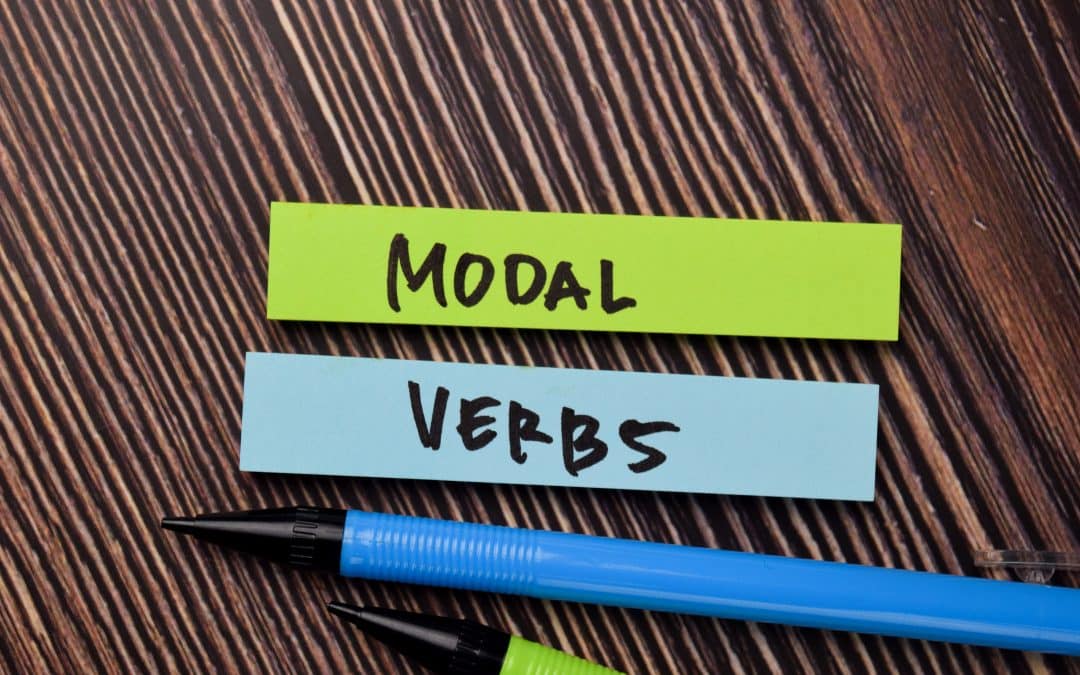Modal verbs in any language are specific verbs which express certain actions, such as obligation, desire, necessity, possibility and approval. In the German language, there are 6 main modal verbs, which are:
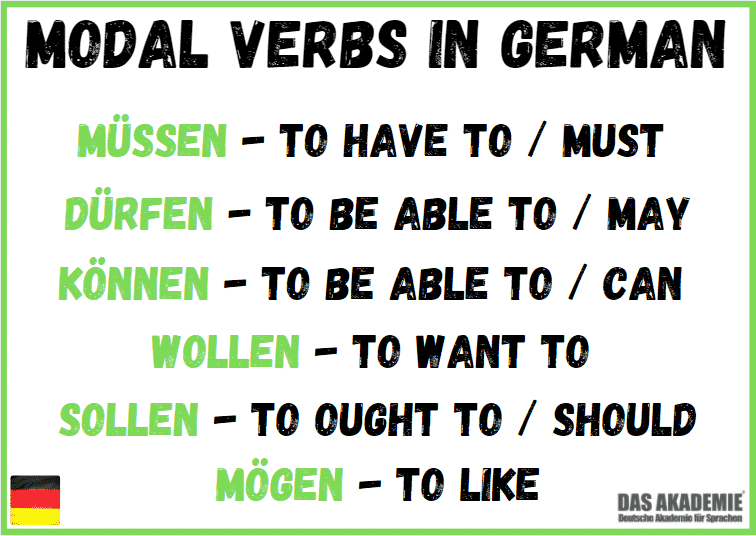
What are the main things to remember about modal verbs in German?
You will usually use modal verbs together with another verb in the German language. Usually, the modal verb will come first, in its conjugated form. Then, due to the rules of German word order, the second verb will come at the end of the sentence or phrase in the infinitive form.
The modal verbs are all irregular, so it may take you some time to learn them off by heart, as the only way to do this is by looking at the tables and memorising them. There are, however, two rules which are worth noting:
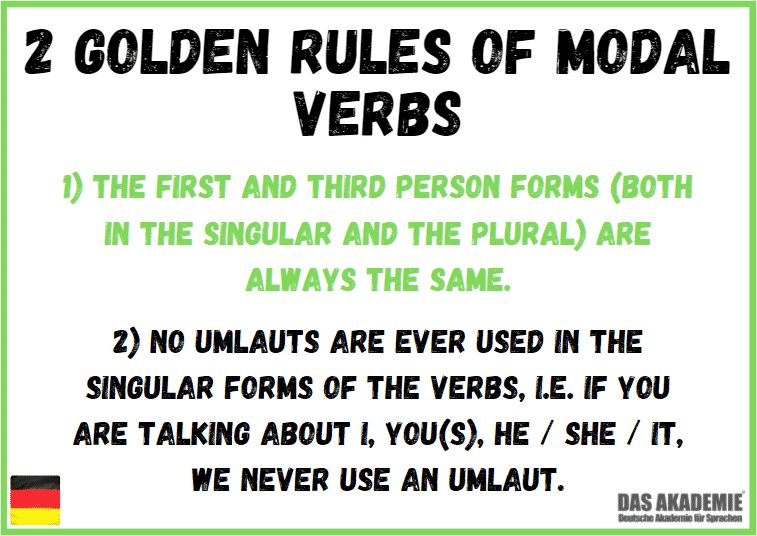
Modal verbs are also rarely used in the perfect tense. Although they do exist, we tend to go around it another way, and it can end up being quite tricky to read at first.
So, we use the verb ‘haben’ in its conjugated form when there are already two or more verbs in the sentence.
The same rule applies to constructions in the future tense. All we need to do here is change the verb ‘haben’ to the normal future tense verb ‘werden’, and conjugate it accordingly.
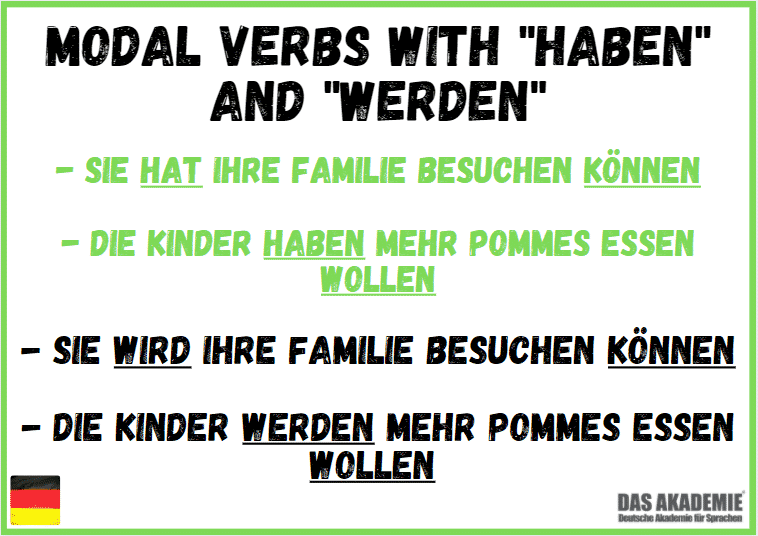
How do I use modal verbs in German?
- When there are two verbs in a sentence, the modal verb will almost always be conjugated, and the second verb will be at the end in the infinitive form.
- If there are three verbs in the sentence, the modal verb will automatically be pushed to the end of the sentence.
- The same structure is applied in the very few instances where there are four verbs in a sentence.
The diagram below shows how the positioning of the modal verb can change depending on the other verbs in the sentence:
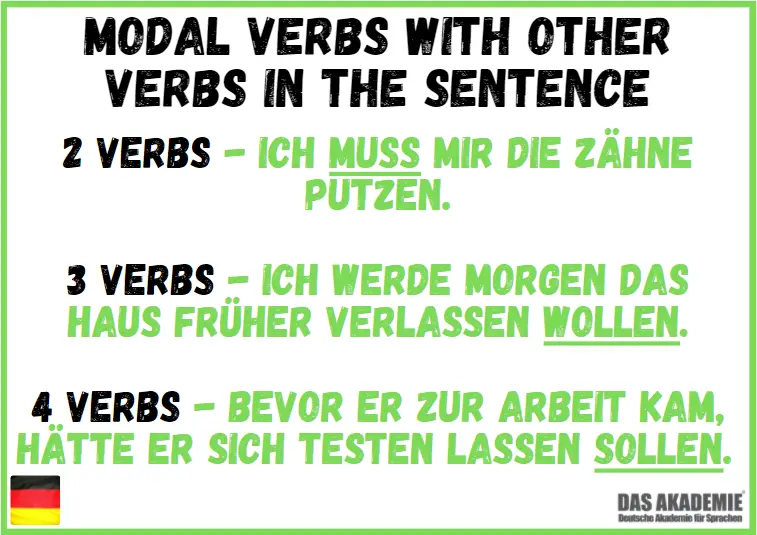
It is also worth mentioning that modal verbs can also be used in the simple past tense, but unlike in the perfect, they need to be conjugated. There is one main tip to remember here, and that is that there are never any umlauts in the simple past forms of modal verbs.
Finally, it wouldn’t be German grammar if there were no exceptions. There are a few instances when it would be okay to use modal verbs alone, i.e. when they don’t need to help another verb out. As you may know, it is possible in German to leave the verb at the end of the sentence out in some cases.
For example, if you wanted to tell someone that you know how to speak German, you would say: ‘Ich kann Deutsch’, as an alternative to ‘Ich kann Deutsch sprechen’. Other examples would be as follows:
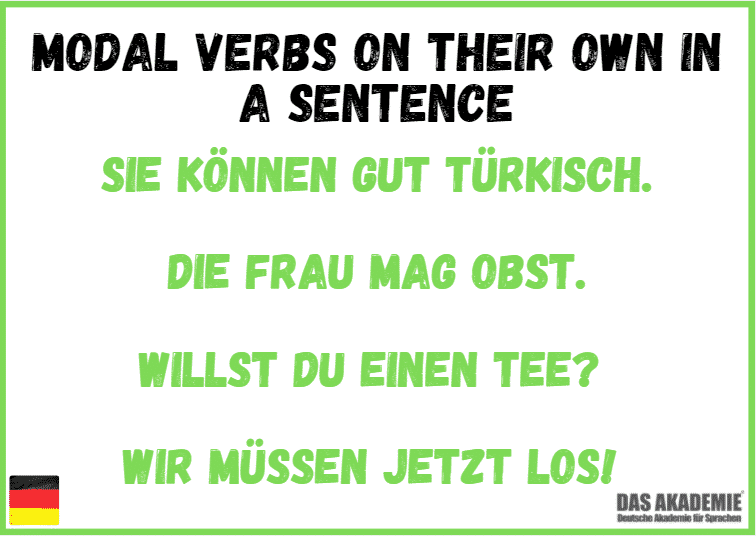
So, there you have it! All the basic information there is about modal verbs! If you’d like to get the hang of German grammar that little bit more, check out our upcoming courses to see which is the best for you!
Alternatively, check out the rest of our grammar blogs for simple guides about the German language!

